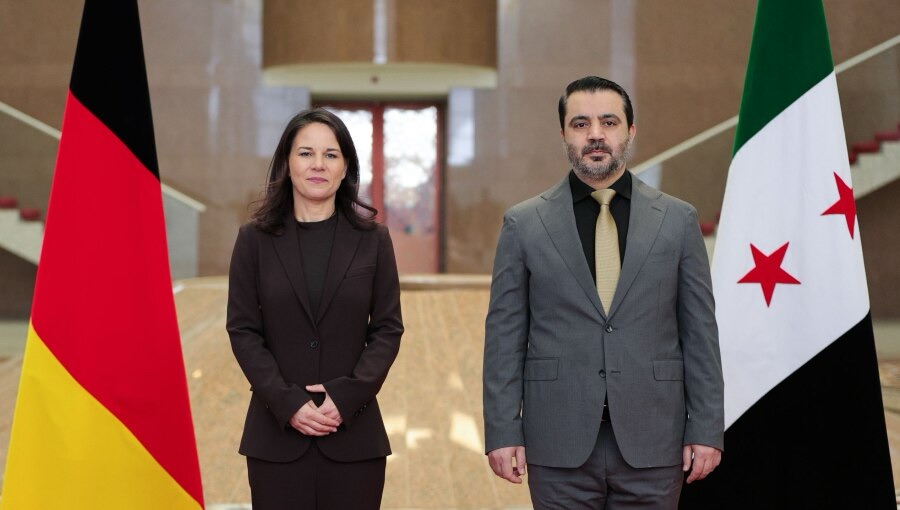Germany reopens Damascus embassy after 13 years as EU eases sanctions
Germany has reopened its embassy in Damascus, marking the first time in 13 years that it has had a diplomatic presence in Syria since closing the mission during the early stages of the country’s civil war.

Germany has reopened its embassy in Damascus, marking the first time in 13 years that it has had a diplomatic presence in Syria since closing the mission during the early stages of the country’s civil war. Foreign Minister Annalena Baerbock reopened the embassy during her visit to the Syrian capital, her second trip to the country since the fall of former President Bashar al-Assad in December.
In a statement published on the Foreign Ministry website, Baerbock said her visit was meant to send a clear message that “a political new beginning between Europe and Syria, between Germany and Syria is possible.” She emphasized, however, that such a restart comes with “clear expectations that there is freedom, security and opportunity in Syria for all people — for women and men, for people belonging to all ethnic groups and religions.”

The reopening comes amid ongoing instability in Syria. Clashes earlier this month between fighters loyal to Assad and forces of the country’s new rulers resulted in the deadliest violence since the civil war, leaving around 1,000 people dead, most of them members of the Alawite minority. Baerbock underscored that the transitional government, led by interim President Ahmad al-Sharaa, “must have control over the actions of the groups in its own ranks and bring those responsible to account.”
Her visit follows a recent agreement between the interim government and the Kurdish-led authority that controls Syria’s northeast. Baerbock praised the “historic” deal, stating that inclusion for other groups is necessary so that they feel “part of a new Syria.”
In a further shift in European policy, EU foreign ministers recently decided to suspend a series of sweeping sanctions to aid Syria’s economic recovery after nearly 14 years of conflict. The EU Council removed five financial institutions from the list of entities subject to asset freezes and authorized financial transactions with the Central Bank of Syria. Additionally, sectoral sanctions in oil, gas, electricity, and transport were lifted, and exemptions were introduced to allow Syrian banks to engage in transactions with EU financial institutions for humanitarian and reconstruction purposes.
Despite these measures, the EU has made it clear that sanctions could be reinstated if conditions in Syria deteriorate. “If everything does not go right, then we are also ready to put the sanctions back,” said EU foreign policy chief Kaja Kallas.
On Monday, European Commission President Ursula von der Leyen announced nearly €2.5 billion in additional European aid for Syrians over the next two years. The funding will support people inside Syria as well as those displaced in neighboring countries, including Jordan, Lebanon, Iraq, and Turkey.














